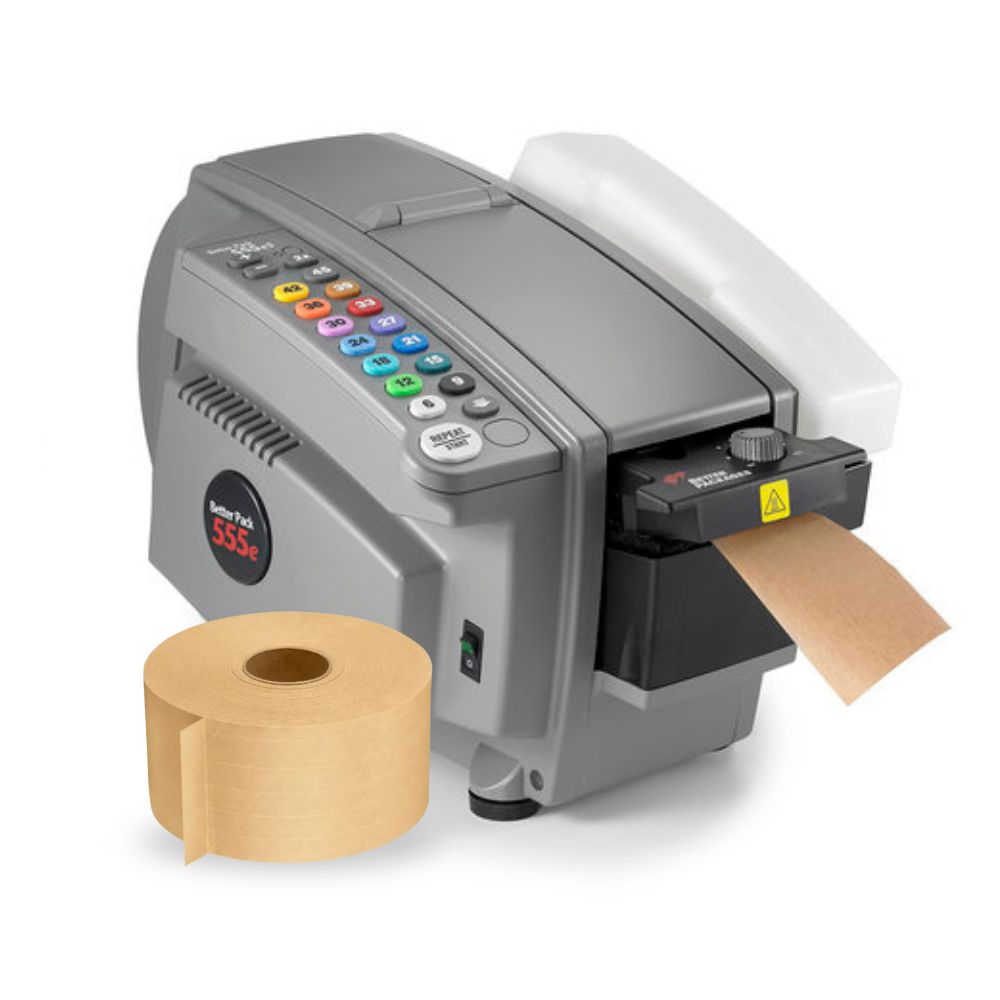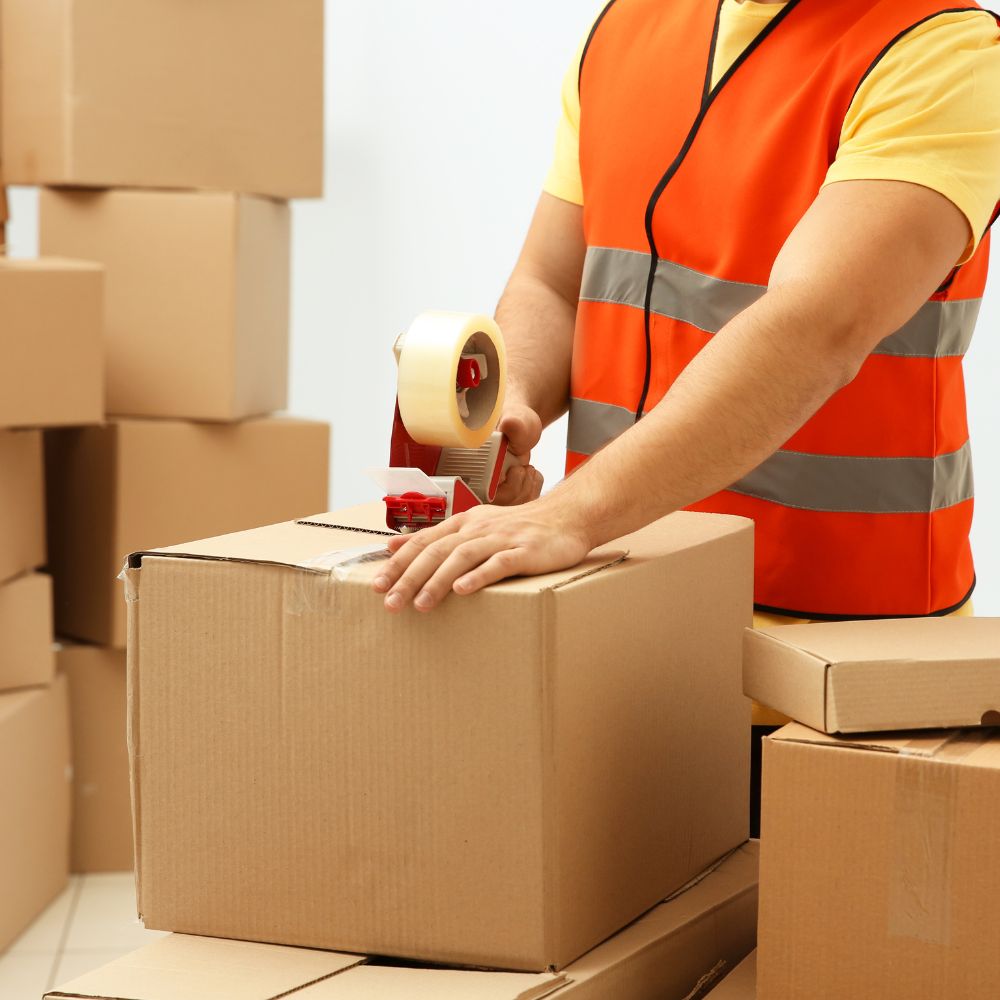Water-Activated Tape vs. Polypropylene Tape:
How to Choose the Right One for Your Business

Water-Activated or Polypropylene Tape: How to Choose the Right One for Your Business
Tape might not be the star of your packaging, but it plays a bigger role than you might think. The right tape keeps your boxes secure, protects your products in transit, and even plays a role in shaping how your customers feel about your brand and products.
Water-activated tape and polypropylene tape are the most common options for sealing packages. Each has its own strengths, and the best choice depends on what you ship, how you ship it, and the image you want to project.
Let’s break down what makes each one unique and how to know which is the best fit for your operation.
What Is Water-Activated Tape?
Sometimes known as WAT, water-activated tape is a type of paper tape that uses an adhesive that is activated when wet. Unlike traditional polypropylene tape that’s already sticky when you pull it off the roll, Water-Activated Tape only sticks once the adhesive has been activated by water. Once in place, the adhesive creates a secure, tamper-evident seal. If someone tries to peel it away, the damage is immediately visible.
If you’ve ever ordered from Amazon, you likely have first-hand experience with water-activated tape. At first glance, it can seem like a greener choice than polypropylene tape, but there’s an important detail to know:some water-activated tape is reinforced with fibreglass threads. While those threads add strength and durability, that reinforcement makes it incompatible with standard paper recycling streams.
How It Works
To use water-activated tape, a dispenser is required. The water-activated tape dispenser applies water to the adhesive as the tape is fed through, allowing it to bond firmly to the corrugated surface.
WAT dispensers range from simple desktop dispensers to fully automated machines that offer pre-cut lengths at the press of a button. An automated solution increases your upfront costs, but depending on the size of your operation, you could be enhancing your efficiency and packaging process in the long run.

Why businesses choose water-activated tape:
- Creates a firm bond with the box surface for strength in transit
- Reveals clear signs if tampered with
- Sticks securely, even to dusty corrugated boxes
- A single strip is often enough to seal a box securely. That can help reduce material use and improve packing speed.
Best for: Medium-to-heavy shipments, high-value products and consumer packaged goods where security is a concern.
Things to keep in mind: Using water-activated tape requires a dispenser with a water source. It’s also not suited to every environment, as performance can suffer in cold or humid conditions - which is why it’s rarely used in food manufacturing or refrigerated storage.
What Is Polypropylene Tape?
Polypropylene tape (Acrylic & Hot Melt), often called polypro or poly tape, is the most common packaging tape you’ll come across. Unlike water-activated tape, it’s sticky right off the roll. Press it down on a corrugated surface and it’s ready to hold. No water activation required. You’ll usually see it in clear, but it also comes custom printed, giving brands a simple way to add logos or messages. Its mix of low cost and versatility is what makes polypro tape a staple in shipping and fulfillment.
How It Works
Polypro tape uses pressure-sensitive adhesive. It bonds when pressed onto the box surface, either by hand with a tape gun or through automated case sealers in high-volume operations. Hot melt or acrylic adhesive options are available, both which have unique qualities depending on the application environment.

Why businesses choose polypropylene tape:
- Simple to apply with a tape gun or automated equipment
- Lightweight and affordable, helping reduce packaging costs
- Adhesive options suited to different shipping conditions
- Available in clear, tan, or custom printed for branding
Best for: Everyday shipping, light-to-medium weight boxes, and high-volume packing lines where speed and cost matter.
Things to keep in mind: Polypro tape is not as tamper-evident as water-activated tape, and in cold environments performance may dip unless you choose the right adhesive type. For heavier or higher-value shipments, more than one strip may be needed to keep boxes sealed securely.
How to Choose the Right Tape (and Everything Else You Need)
Choosing the right tape comes down to what you ship, how you ship it, and the impression you want your packaging to create. Water-activated tape provides tamper-evidence and strength for heavier or high-value shipments. Polypropylene tape is the everyday choice for speed and cost efficiency.
At Whitebird, we provide the products your business depends on and the insights to know which supplies are right for your operation. From corrugated boxes to packaging supplies and equipment, safety supplies, janitorial supplies and beyond, our team is here to keep your operation running smoothly.
Whitebird. Helping your business deliver. Talk to an expert about your packaging and supply needs. Or call us at 800-263-2128.
